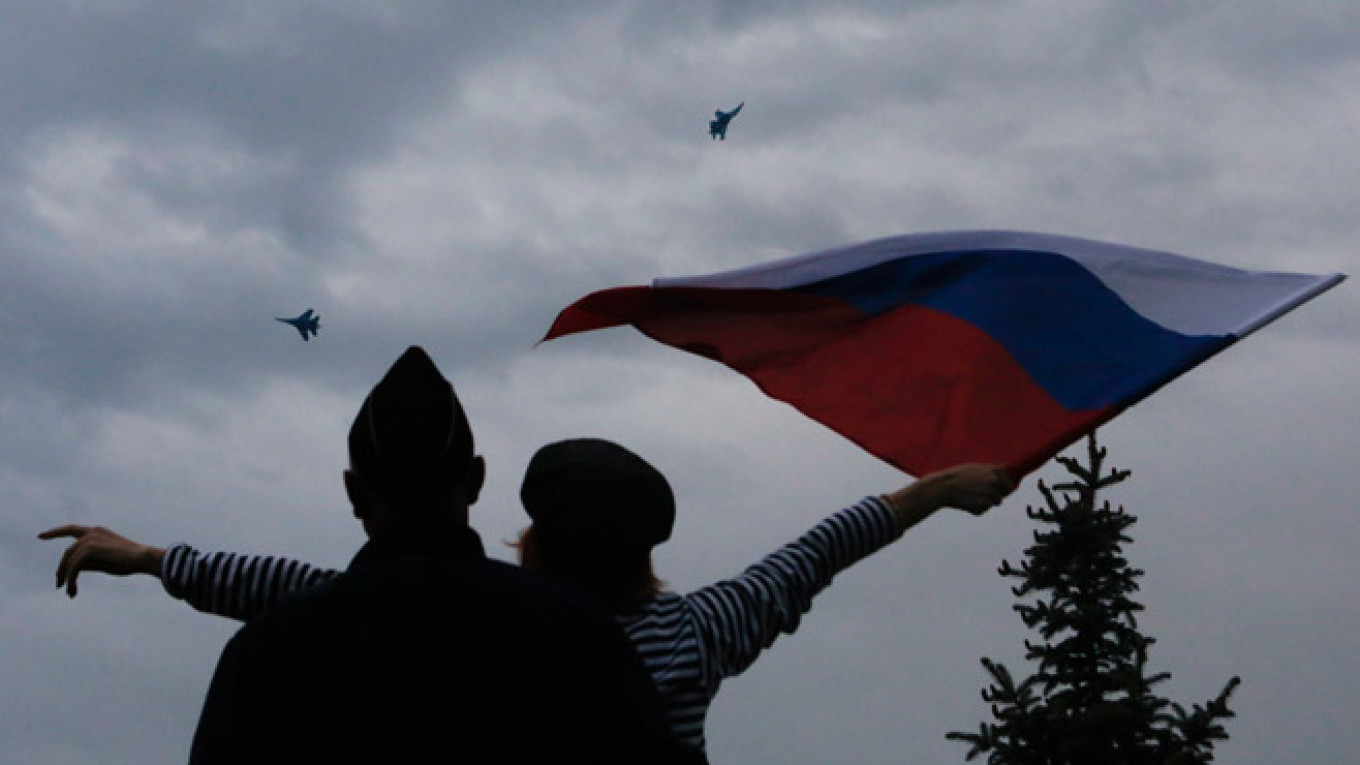A bill introduced at Russia's parliament would seek to protect children from information that "denies or distorts patriotism," according to a document published on the legislature's website.
Submitted Thursday by United Russia lawmaker Arkady Ponomaryov, the bill proposes amendments to Russia's law on protecting children from information deemed detrimental to their well-being, adding supposedly unpatriotic information to the list of knowledge from which Russia's children should be safeguarded.
The bill defines "patriotism" as the "love for the fatherland, devotion to it, striving to serve its interests through one's actions."
If adopted, the bill would add information that "denies or distorts patriotism" to its top category of things from which all children need to be protected, regardless of age. Other items in that category include inducement to commit suicide, promotion of illegal drug use, violence and homosexual relationships.
Readers of the Ekho Moskvy website — a respected news outlet whose coverage was denounced as "anti-Russian" by pro-Kremlin monitors earlier this year — responded with a flurry of comments deriding the bill.
"The bill says explicitly that citizens must ensure the interests of the state — cogs in a machine, now they do not even have the right to make a yelp against it," one of the readers commented.
Another asked: "What kind of a normal country needs to protect patriotism … by law?"
An explanatory note to the bill cited surveys by the state-funded pollster VTsIOM indicating that the number of Russians who consider themselves "patriots" dropped to 80 percent in December 2012.
No survey data were available to show how Russians' sense of patriotism was affected by the annexation of Crimea, but recent polls showed a significant increase in the number of Russians who consider their country a great power, and President Vladimir Putin's approval ratings soared to a whopping 82 percent in mid-April, according to the Levada Center pollster.
All the polls were conducted among 1,600 people throughout Russia and carried a 3.4 percent margin of error.
"The forming of patriotism begins in early childhood," Ponomaryov said in his explanatory note to his bill, noting that the view had been upheld by thinkers such as Alexander Herzen — a 19th-century writer often regarded as the father of Russian socialism.
It remained unclear how the bill would deal with classical Russian writers whose views on patriotism did not always toe their government's line.
Another Ekho Moskvy reader quoted a poem by Mikhail Lermontov, the great 19th-century Russian poet, titled "Motherland," which was part of mandatory school reading during Soviet times: "I love my homeland, but in the strangest way."
Contact the author at newsreporter@imedia.ru
A Message from The Moscow Times:
Dear readers,
We are facing unprecedented challenges. Russia's Prosecutor General's Office has designated The Moscow Times as an "undesirable" organization, criminalizing our work and putting our staff at risk of prosecution. This follows our earlier unjust labeling as a "foreign agent."
These actions are direct attempts to silence independent journalism in Russia. The authorities claim our work "discredits the decisions of the Russian leadership." We see things differently: we strive to provide accurate, unbiased reporting on Russia.
We, the journalists of The Moscow Times, refuse to be silenced. But to continue our work, we need your help.
Your support, no matter how small, makes a world of difference. If you can, please support us monthly starting from just $2. It's quick to set up, and every contribution makes a significant impact.
By supporting The Moscow Times, you're defending open, independent journalism in the face of repression. Thank you for standing with us.
Remind me later.


